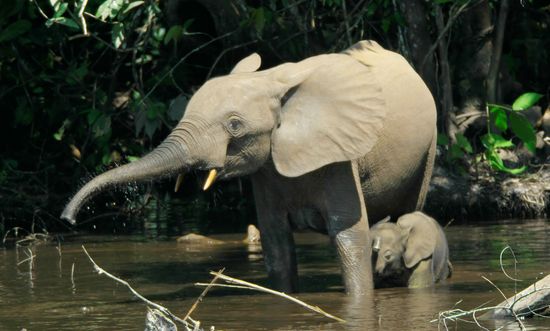Elephant Census Reveals Scary Numbers, and a Powerful Niche for Philanthropy
/
A Vulcan Inc.-led initiative has pulled off a massive survey of African elephants, providing desperately needed stats on poaching. It also demonstrates a valuable role for philanthropy—counting things.
For the past three years, the philanthropic arm of Paul Allen’s Vulcan Inc. has been funding the first pan-African survey of savannah elephants, which always seemed like a pretty daunting project. We’re talking about flying all over the second-largest continent, and tallying animals that are being killed at an alarming rate.
But around $7 million later, the partnership has released its numbers, showing just how big the problem is, and how complex the census project really was.
The results are drawing a lot of attention—a decline of 30 percent of African savanna elephants between 2007 and 2014. That’s 144,000 elephants, and a rate of decline of 8 percent per year, mainly because of poaching. That’s startling. But the census also found pockets of hope in countries that are managing wildlife better than expected, and has identified worst offenders, who have decried the release of the data.
It’s an astounding project, and it can’t be credited all to Vulcan. Elephants Without Borders was the lead grantee, and government staff in the 18 surveyed countries collaborated, along with 90 scientists, and other partner nonprofits. A total of 81 planes and 286 crew members collected the data, using standardized data collection methods.
But looking at the philanthropic component, the impressive part of this project is the funder-as-wrangler role—after all, in Paul Allen-land, $7 million isn’t so much.
Related:Behind a New Autism Initiative: Philanthropy as a Wrangler of Data and People
The project grew out of a meeting between Allen and Elephants Without Borders’ founder, who indicated a census was really needed to make progress. Lack of hard data has obfuscated conservation efforts for years, and such a tally was considered impossible by many.
It was far from alone in the effort, but Vulcan was able to facilitate a project that needed to pull together several actors and create the critical mass of will that can be a powerful role for philanthropy on its own.
But funder-as-measurer is another thing we’re seeing a lot of lately, especially in conservation.
Vulcan’s engineers developed the unique data logger unit, the census database, and built open-source software for the project that can be used elsewhere and evolve for other needs.
Paul Allen, like Bloomberg, Moore, Simons and many others, is particularly fond of data as a tool. It’s a hallmark of a lot of Allen’s conservation work. Pulling together baseline data can be a prime opening where philanthropy can make a big difference, providing a neutral foundation on which to build future efforts.
After all, Allen’s under no illusion that he’s going to stop poaching of elephants in Africa. But establishing metrics is a project a funder can understand, and that gives the ass-kicking practitioners on the ground something of immense value to arm themselves with.
Related:Paul Allen’s Conservation Giving is Going After Data, Now on Sharks








